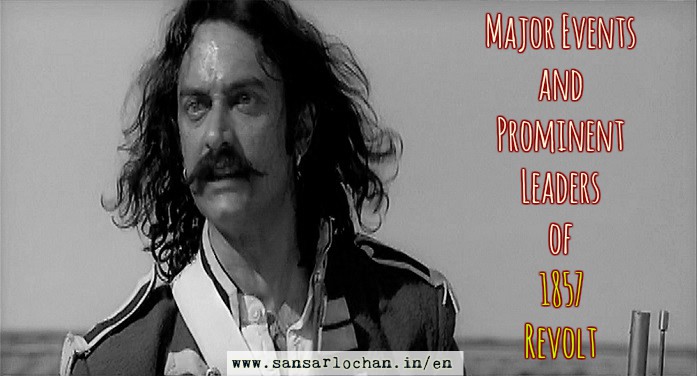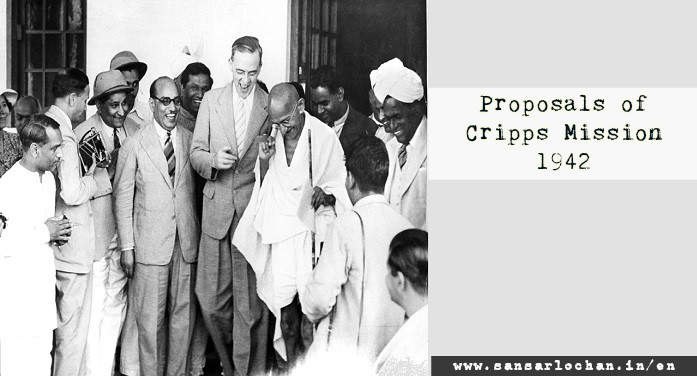Samudragupta was the greatest king of the Gupta dynasty who ruled for 40 years. He was an ambitious ruler and wanted to be a “Chakravarti” (emperor). Today we will discuss about his military conquests and victories in North and South India as well as victories grabbed by him over forest kingdoms and in border states. Conquests by Samudragupta Samudragupta is … Read More
Major Events and Prominent Leaders of 1857 Revolt
In the last post on the 1857 Revolt we had gone into the causes and circumstances leading to the outbreak of “First War of Indian Independence “. Now we will discuss below the major events and personalities connected with the 1857 Revolt. We will also throw light on the spots where the main conflict took place. Major Events of 1857 … Read More
[Part 2] Short Answers UPSC – Famous Figures in History
Give the nationality and contribution of the following famous figures in History: – Zoroaster Leo Tolstoy Picasso Freud Charles Darwin Edison Dayanand Saraswati Ashoka The Kingdom of Vijaynagar Harihara and Bukka Akbar Lord Bentinck Sardar Patel Zoroaster A Persian reformer and the founder of “Zoroastrianism”. He is supposed to be the author of the hymns called Gathes. Leo Tolstoy A … Read More
[Part 1] Short Answers UPSC – History Random Topics
We will learn writing short answers of different topics of Ancient, Medieval and Modern History. Writing short answers of the given topic is not an easy task. You have to be precise and accurate while writing short answers. UPSC also needs 200 words answer writing these days in its mains examination. Here we are giving you some samples of history … Read More
Brief Note on Mountbatten Plan of June 3, 1947
The representatives of the Muslim League from the Muslim-majority provinces boycotted the Constituent Assembly formed to frame a new Constitution for India. Communal riots broke out in different parts of the country. The Congress, though, in power at the Centre could not control the situation, as law and order was the responsibility of the provinces. To solve the political and … Read More
How were Indus Valley and Vedic Civilizations different from each other?
The Indus Valley Civilization was definitely older than the Vedic Civilization. Whether the two civilizations formed parts of the same civilization is a topic of hot discussion amongst historians. According to a school of scholars the two were of different origins. Some other think that the two civilizations were the same but there timing was widely apart. Whatever it might … Read More
Buddhist Architecture – Monasteries and Stupas
Initially the Buddha was worshiped in the form of specific symbols. The most prevalent symbol was the leaf of peepal (Ficus religiosa). Another symbol in use was the elephant. In course of time the sites containing these symbols were encircled with wood or stones. Thus gradually the Buddhist architecture took shape. The first such veneration sites are now lost. But … Read More
Bhakti Movement and Bhakti Saints in Indian History
If we take note of the religious and literary progress made by the people under the Afghan rule, we shall understand how little the Muslim conquest of India really affected the lives and the peaceful avocations of the people. The sects of Vishnu and Shiva were the prevailing sects in India in the medieval times, and the worship of Rama … Read More
Buddhist Sacred Literature and Moral Precepts
Buddhist Sacred Literature Not many centuries after the death of the Buddha, his teachings were spread by word of mouth to Ceylone, and they were recorded in writing in the Pali language, in 88 B.C., in the form in which we have them now. This prolific literature consists of three parts, or Three Baskets as they are called. The first is said to contain the … Read More
Proposals of Cripps Mission 1942 and Reasons behind its Rejection
In March 1942, when Japan was knocking at the doors of India by penetrating into Imphal, Sir Stafford Cripps, a prominent Labour member of the British Cabinet, came to India to discuss with the political leaders of the various parties some proposals for the political future of India after the war. His interim proposals were rejected by all the political parties. In this … Read More

